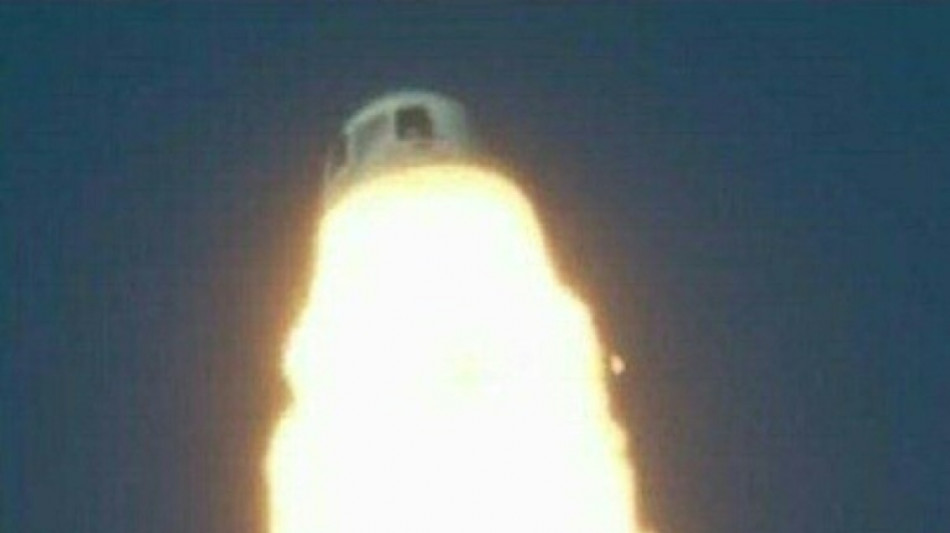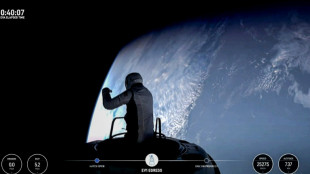

Uncrewed Blue Origin rocket crashes, capsule recovered
An uncrewed Blue Origin rocket carrying research payloads crashed shortly after liftoff on Monday, but the capsule carrying experiments escaped and floated safely back to Earth, Jeff Bezos' space company said.
The company tweeted a short video clip showing the moment when the capsule fired emergency thrusters to separate from its booster rocket, around a minute after launching from Blue Origin's base in west Texas.
"Booster failure on today's uncrewed flight. Escape system performed as designed," Blue said on its website, noting the rocket "impacted the ground" instead of landing upright as it normally does.
The New Shepard suborbital rockets have been grounded pending an investigation, the Federal Aviation Administration said, which is standard procedure.
"The capsule landed safely and the booster impacted within the designated hazard area. No injuries or public property damage have been reported," the FAA added.
It was the 23rd mission for the New Shepard rocket program, named after the first American in space, and the first to end in failure.
NS-23, which had 36 experiments on board, was first set to launch in late August, but was delayed due to inclement weather.
The anomaly occurred as the rocket was climbing at 700 miles per hour (1,126 kilometers per hour) at an altitude of about 28,000 feet (8,500 meters).
The capsule then fired emergency thrusters to separate, engulfing the booster in a bright yellow flame.
The incident marks a setback for both Blue Origin and the nascent space tourism industry.
Blue Origin began flying humans to space on 10-minute rides last year for an unspecified ticket price.
In all it has flown 32 people -- some paying customers and others guests. Notable passengers include founder Jeff Bezos and Star Trek icon William Shatner.
Passengers experience a few minutes' weightlessness and observe the curve of the Earth before the capsule re-enters the atmosphere and floats down for a gentle desert landing.
T.McGilberry--NG



